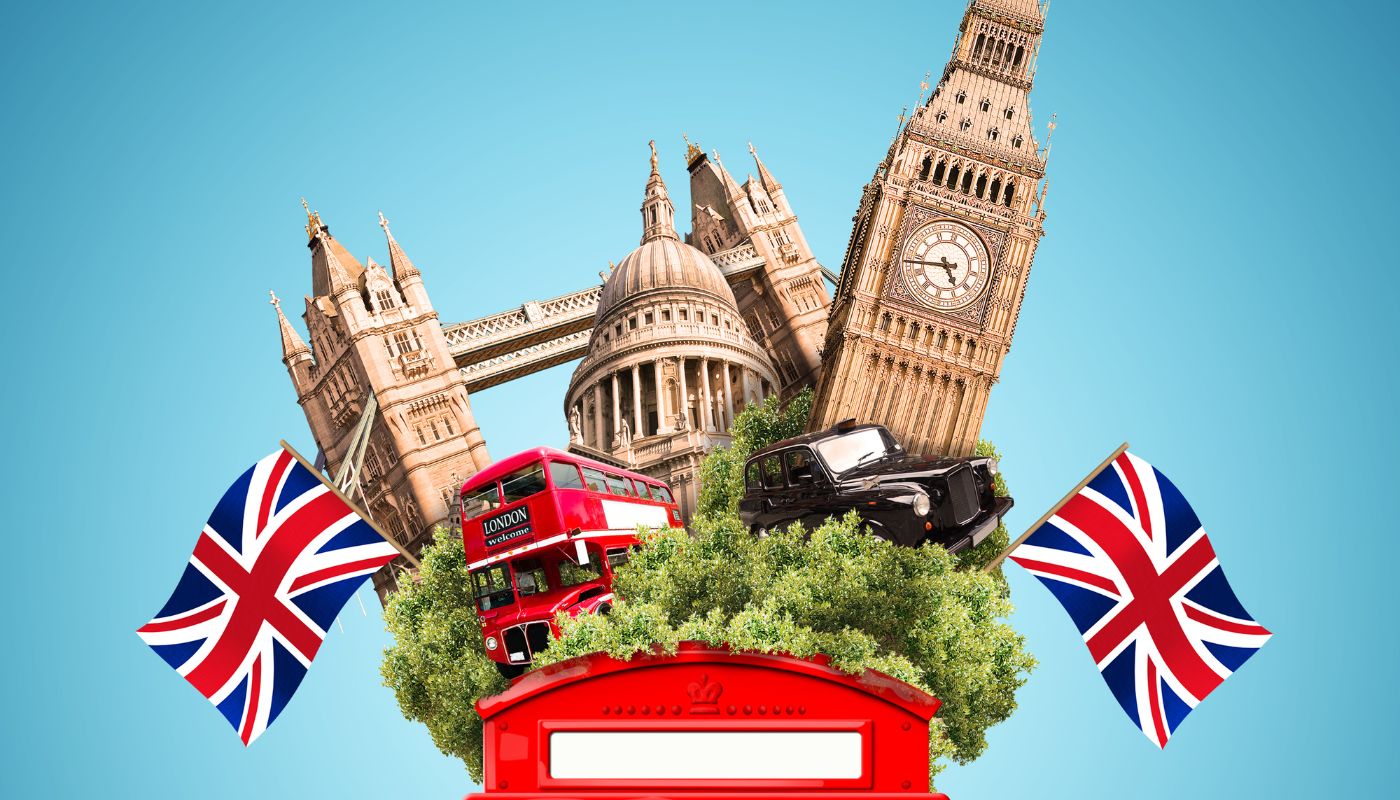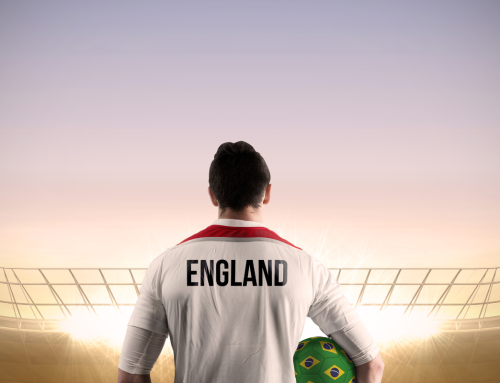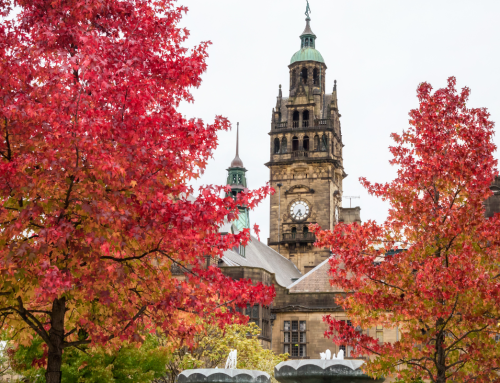When you experience British culture during your study holiday, you’ll learn that the Brits boast a blend of historical and modern customs that shape everyday life in the UK.
Understanding and participating in these traditions will enrich your study holiday experience, and support you in navigating social situations. Whether you’re attending a local UK festival or simply interacting with your host family, teachers, and classmates, this guide will provide valuable insights into the cultural nuances that make Britain great.
By familiarising yourself and engaging with British customs, you’ll return home with a broader understanding of the world.
British Celebrations and Festivals
Learning about British celebrations and festivals will help you appreciate and participate in UK culture during your stay. Here are some important annual traditions the Brits celebrate:
New Year’s Eve and Day
Celebrations include parties with close friends and family, having dinner together and playing games. This often culminates in a countdown to midnight, upon which people light fireworks and make New Year’s resolutions.
In Scotland, Hogmanay celebrations include singing “Auld Lang Syne.” In Edinburgh in particular, Hogmanay is a big celebration where the city throws street parties and hosts events over 3 days to celebrate and start the new year off with a bang.

People also use sparklers to light the sky on new years eve!
Valentine’s Day
Valentine’s Day is celebrated worldwide and it’s no different in Britain! This is a day to spread love and kindness and to show someone special that you care about them. People usually buy red roses, chocolates, and cards for their loved ones, or go for a fancy dinner to celebrate. Valentine’s Day is always on the 14th of February.
Shrove Tuesday
Shrove Tuesday is also referred to as Pancake Day! It’s a beloved tradition in the UK, especially among children. It marks the Tuesday before Ash Wednesday, which signals the beginning of Lent. Brits celebrate pancake day by eating pancakes for breakfast or as a dessert after dinner.
The day after, Ash Wednesday, British people give up something they love for the 40 days of Lent, in the countdown to easter. Usually, this is a ‘guilty pleasure’ such as chocolate, so when Easter Sunday arrives, they can celebrate their hard work by eating lots of Easter eggs!
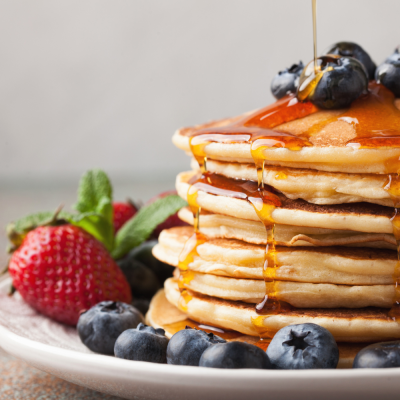
British people eat both sweet and savoury pancakes.
Easter
Easter in the UK is marked by events such as egg hunts, arts and crafts fairs, and the giving of chocolate eggs. Usually, after Easter mass, Brits get together with their close families to enjoy a traditional roast dinner. Other traditional foods include hot cross buns, spiced buns with a cross on top, and Simnel cake, a fruitcake with a layer of marzipan.
Bonfire Night
Held annually on the 5th of November, Bonfire Night commemorates the foiling of the Gunpowder Plot in 1605. This was a conspiracy plan to blow up the houses of parliament and assassinate King James I, led by man named Guy Fawkes. Expect to see large fireworks displays, huge bonfires, and effigies of Guy Fawkes being burned.
Traditional food is BBQ meat, candy floss, and toffee apples. Children also usually wear light-up accessories or have glow-in-the-dark toys and, at some large-scale bonfire celebrations, they have stalls with games such as apple bobbing. This tradition is often accompanied by the phrase “Remember, remember the Fifth of November.”
Remembrance Day
Held on the 11th of November, this day commemorates those who have died in military service. People purchase and wear fabric poppies, a symbol of respect and gratitude for their armed forces and hope for a peaceful future. It is a tradition for many people in the UK, and everyone takes a two-minute silence at 11 a.m. on Remembrance Day.
Christmas Eve and Day
While some aspects of Christmas are universal, British Christmas Eve traditions include having a party and, for the children, leaving out a mince pie and a glass of milk for Santa, and a carrot for Rudolph to enjoy before they go to bed. Leading up to Christmas, Brits decorate their homes with lights and a Christmas tree.
On Christmas Day, traditions include opening presents in the morning, pulling crackers, feasting on a roast dinner, playing games, and watching the King’s speech. Some families enjoy a Christmas pudding set alight with brandy and sing carols such as “Silent Night” and “O Come All Ye Faithful.”
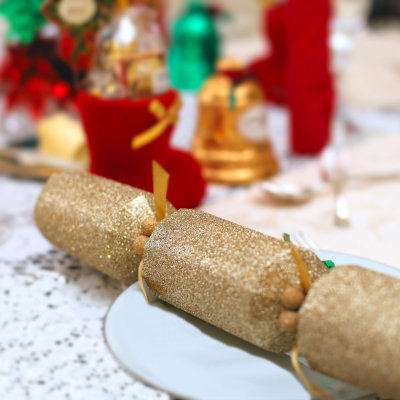
Crackers are usually pulled before dinner on Christmas.
Traditional British Meals and Drinks
While the origins of some of these meals and drinks are unclear, and no country or city can definitively claim them as their own, there is no doubt that the following is an integral part of British culture.
Sunday Roast
It is very common for Brits to enjoy a roast dinner on Sundays, which has been a part of British culture since the 15th century and is believed to be linked to religion.
This typically includes roasted meat such as chicken or beef, served with vegetables, potatoes, Yorkshire puddings, and gravy. It’s a time for a family to sit around the table and connect before the busy week ahead.
Since Sunday is widely considered a day of rest and worship, families would attend church and then return home to a special meal that had been cooking in the oven. While its roots may be religious, it has become a significant tradition shared by many families across Great Britain, whether they are religious or not.
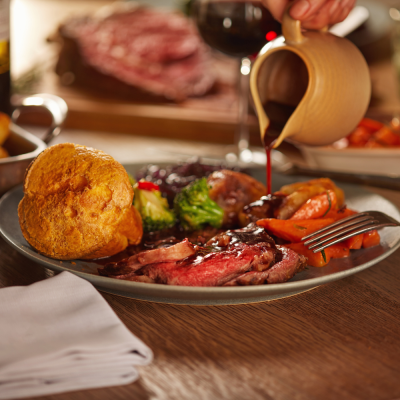
A typical Sunday Roast.
English Tea
We’ve all heard the stereotype that the Brits love a good cup of tea. While, in real life, it’s no longer as regal as it might be shown on TV, it is most definitely an integral part of their culture. It is a way to connect with family and friends and, when hosting visitors, the host usually offers a ‘cuppa’ to their guests.
Homemade tea using a shop-bought tea bag is commonly known as a ‘builders brew‘, which comes from the inexpensive tea drunk by labourers, such as builders, during their breaks.
A cup of tea can be very comforting, and you might find Brits reaching for the kettle in times of crisis. In Britain, you will still find the more regal afternoon tea in cafes and pubs, but most tea drinkers prefer to drink it in the comfort of their own home.
Full English Breakfast
Most people prefer a quick breakfast in the morning before work or school, such as cereal and toast. However, on the weekends, a full English breakfast is a treat!
The meal typically consists of bacon, sausage, eggs, beans, toast, and hash browns. In Scotland, they also enjoy this breakfast with black pudding. Since it is such a large meal, Brits typically have this between breakfast and lunch, since you will be too full to eat both!
Our top tip: use Instagram to research your destination before you go, to find the best pubs and cafes in the area! We have more handy tips in our guide to essential travel tips for first-time UK visitors.
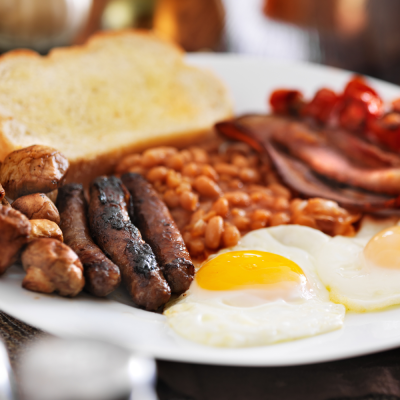
Full English Breakfasts are typically enjoyed on weekends.
British Customs and Traditions
British customs are the social behaviour and etiquette that reflect British cultural norms. These customs have evolved over centuries, influenced by historical events and societal changes, underpinning the very essence of British culture.
What Should I Know About British Etiquette Before Visiting?
Before visiting, familiarise yourself with British etiquette. Respect queues, embrace politeness in greetings, and understand dining customs. Engage with locals politely and adapt to the culture. These gestures will make your visit smoother and more enjoyable.
Brits pride themselves on their politeness, it is a cultural standard and is expected of everyone from locals to first-time visitors. If there is one thing you take away from this article, let it be the following!:
Queuing
Queuing is not just about standing in a line, it’s a symbol of British civility and orderliness and reflects their respect for fairness and patience.
Brits take queuing very seriously, whether at bus stops, in shops, or for a table at a restaurant. This behaviour is ingrained from childhood, as children are taught the importance of waiting for their turn. It’s not that they love queueing. In fact, they find it as boring and as tedious as everyone else. However, they have the utmost respect for the convention and get very annoyed at anyone who doesn’t follow the order.
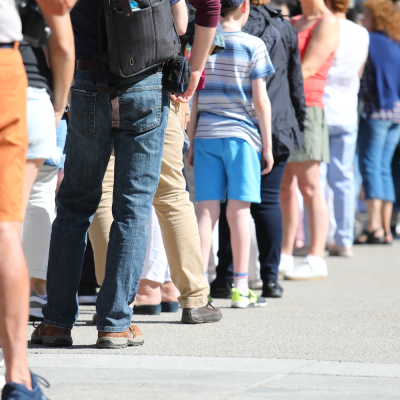
A local might scold you if you queue-jump, or at best give you a ‘dirty look’, so it’s best you respect the order!
Saying Sorry
We’re not talking about saying sorry if you have done something wrong, that is a universal sign of respect. However, in Britain, many people say sorry even if they haven’t done anything.
For example, you’re on the bus and you accidentally step on someone’s toe, you say sorry for stepping on their toe and they say sorry for being in your way!
They also tend to say sorry instead of ‘excuse me’ when trying to get past you, or when they’re trying to get a waiter’s attention in a restaurant. Not all Brits say sorry all the time, but you will definitely hear it frequently on your study abroad adventure.
Practical Tips for Students
Engaging with locals is key to understanding British culture. By integrating in the community, you’ll understand the country and it’s people way beyond what you could learn in textbooks. Adaptation is crucial.
Engaging with Locals
Engaging with locals in the UK can enrich your understanding of British culture. From chatting over a cuppa in a traditional cafe to enjoying a Sunday roast together, locals appreciate a genuine interest in their way of life.
Consider participating in local activities like Morris dancing or attending harvest festivals to connect with community traditions. Social media platforms can also offer insights into local events and gatherings.
Politeness and a friendly, approachable attitude will go a long way in interactions, reflecting the British emphasis on good manners. By embracing the customs and values of the British people, you can build meaningful connections and make your study break in the UK truly memorable.
Adapting to British Culture
Moving to a new country can be both exciting and daunting. Adapting to British culture, depending on your home country, may take some time. Understanding the importance of British customs like queuing and the history behind some of their beloved traditions can help ease the transition.
It’s essential to keep an open mind and be receptive to new ways of living to get the most out of your study abroad experience.
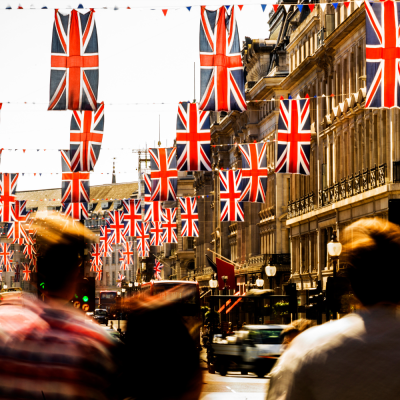
Exploring British Culture: Final Thoughts
From country-wide traditions like the Sunday roast to the annual celebrations like Bonfire Night, it’s clear the Brits embrace tradition. By learning and understanding the history behind British culture and how you can participate in it, you will integrate seamlessly into your new community on your study abroad trip.

